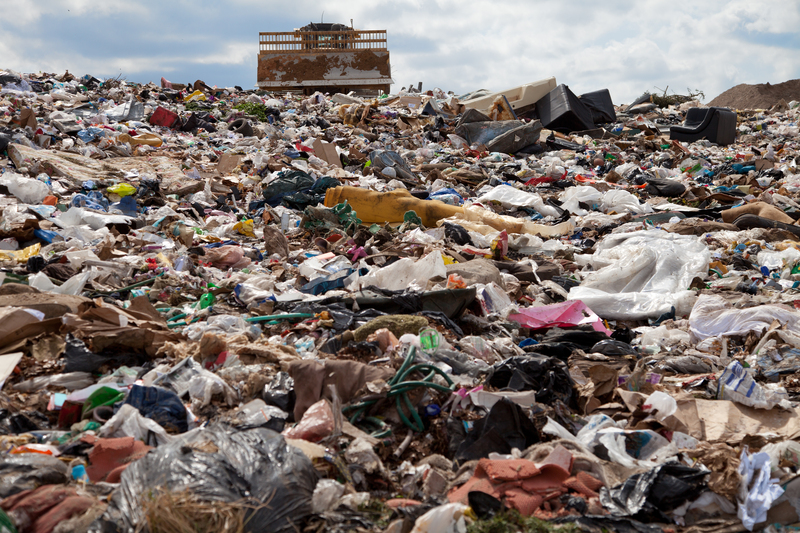Environmental Deterioration Due to Improper Waste Handling
In today's rapidly industrializing world, the improper handling of waste has emerged as a pressing issue, significantly affecting the environment. From urban areas to rural expanses, the negligent disposal and treatment of waste have far-reaching consequences. This article delves into the depths of how waste mismanagement contributes to environmental degradation, the associated harmful impacts, and the necessary measures to combat this global dilemma.
The Scope of Waste Mismanagement
Waste management encompasses the collection, transport, processing, and disposal of waste materials. When these processes are improperly conducted, several adverse effects manifest. A crucial factor is the sheer volume of waste produced globally. As economies and populations grow, so does the amount of waste generated. Currently, the world produces over two billion tonnes of municipal solid waste annually, with this figure expected to increase dramatically in the coming decades.
Key Factors Leading to Improper Waste Handling
- Inadequate Infrastructure: Many regions lack the necessary facilities and technologies for effective waste management, leading to accumulation and improper disposal.
- Poor Policy Implementation: Even when policies exist, their execution often falls short, resulting in unregulated dumping and mismanagement.
- Lack of Public Awareness: Communities may not fully understand the implications of improper waste handling, leading to negligent behavior.
- Financial Constraints: Insufficient funding for waste management systems in many countries results in inadequate waste disposal and treatment processes.

Environmental Impacts of Improper Waste Disposal
The mishandling of waste affects the environment in numerous ways. Below, we unravel some of the most critical environmental impacts.
Pollution and Contamination
Improper waste handling is a major source of pollution. When waste is disposed of indiscriminately, harmful pollutants seep into the air, water, and soil. For instance:
- Air Pollution: Burning of waste releases toxic gases like carbon dioxide, nitrogen oxides, and sulfur dioxide, contributing to air quality deterioration.
- Water Contamination: Leachates from landfill sites often contaminate nearby water bodies and groundwater, affecting aquatic life and drinking water quality.
- Soil Degradation: Hazardous waste materials degrade the soil quality, affecting agricultural productivity and vegetation growth.
Biodiversity Threats
Improper waste management endangers wildlife habitats and results in biodiversity loss. As habitats are polluted or destroyed, many species struggle to survive, leading to declining wildlife populations. For instance:
- Plastic debris in oceans poses a severe threat to marine life, where ingestion and entanglement lead to countless animal deaths annually.
- Landfills can attract pests and invasive species, outcompeting native species and unsettling local ecosystems.
Climate Change Acceleration
The improper handling of organic waste in landfills generates methane, a potent greenhouse gas that exacerbates climate change. Inefficient waste management directly contributes to increasing global temperatures and climate variability.
Economic and Health Consequences
Economic Burden
Improper waste management leads to substantial economic costs. Cities around the world expend valuable resources to mitigate waste-related problems, resulting in financial burdens on municipalities and taxpayers. Furthermore, tourism and local businesses suffer due to polluted environments.
Health Hazards
Exposure to improperly managed waste poses serious health risks for humans. Communities situated near landfill sites or unregulated waste dumps often experience increased incidence of respiratory problems, infections, and chronic diseases. These health issues lead to increased healthcare costs and reduced quality of life.

Solutions to Mitigate Waste Management Challenges
Addressing the problem of improper waste handling requires a comprehensive and multifaceted approach. Effective solutions are essential to prevent further environmental degradation and ensure sustainable development.
Implementing Effective Waste Management Systems
- Recycling and Reuse: Encouraging recycling practices reduces waste volumes, conserving resources and energy in the process.
- Composting: Treating organic waste through composting can convert it into valuable fertilizers, minimizing landfill usage.
- Advanced Waste Treatment: Adopting technologies like waste-to-energy and bioconversion can provide sustainable waste disposal options.
Policy and Legislation
Governments must enact and enforce stringent waste management regulations. Effective waste policies should emphasize resource recovery, environmental accountability, and sustainable waste treatment pathways. International cooperation can further enhance these efforts through shared research and technology transfers.
Education and Public Awareness
Raising public awareness about the environmental impacts of improper waste handling is paramount. Educational campaigns and community programs can foster better waste disposal practices among individuals and businesses.
Conclusion
The dire consequences of improper waste handling on the environment underscore the urgent need for societal change. Proactive waste management efforts can mitigate pollution, preserve biodiversity, and contribute to a healthier planet. As stakeholders at all levels come together to address this challenge, we pave the way for a sustainable future, ensuring environmental integrity and prosperity for generations to come. Through concerted action and dedication, the impact of waste on our environment can be controlled and eventually transformed into opportunities for positive growth and ecological resilience.